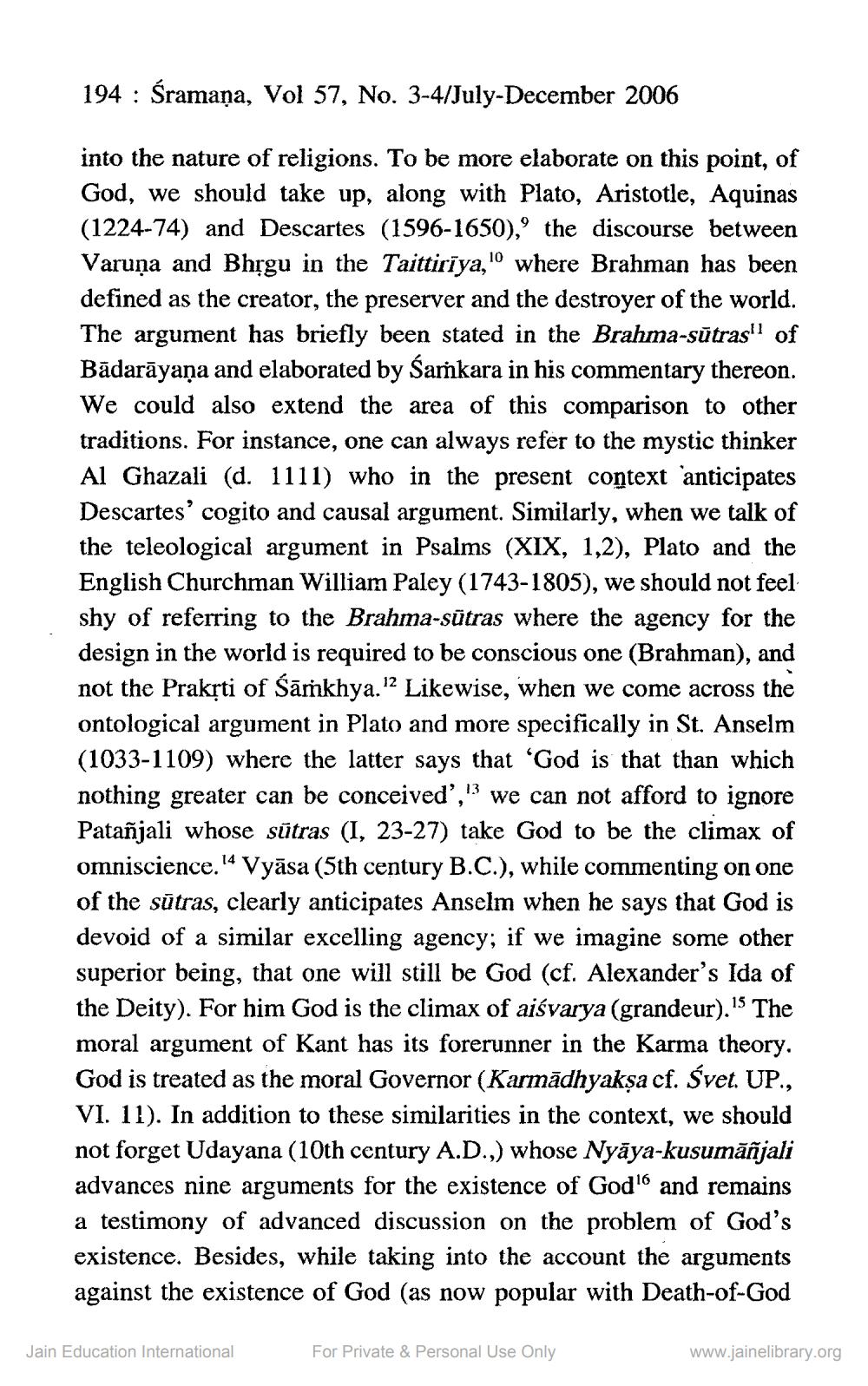________________
194 : Śramaņa, Vol 57, No. 3-4/July-December 2006
into the nature of religions. To be more elaborate on this point, of God, we should take up, along with Plato, Aristotle, Aquinas (1224-74) and Descartes (1596-1650),' the discourse between Varuna and Bhrgu in the Taittiriya, where Brahman has been defined as the creator, the preserver and the destroyer of the world. The argument has briefly been stated in the Brahma-sūtrasl of Bādarāyaṇa and elaborated by Saṁkara in his commentary thereon. We could also extend the area of this comparison to other traditions. For instance, one can always refer to the mystic thinker Al Ghazali (d. 1111) who in the present context 'anticipates Descartes' cogito and causal argument. Similarly, when we talk of the teleological argument in Psalms (XIX, 1,2), Plato and the English Churchman William Paley (1743-1805), we should not feel shy of referring to the Brahma-sütras where the agency for the design in the world is required to be conscious one (Brahman), and not the Prakrti of Śāṁkhya. "2 Likewise, when we come across the ontological argument in Plato and more specifically in St. Anselm (1033-1109) where the latter says that 'God is that than which nothing greater can be conceived','3 we can not afford to ignore Patañjali whose sutras (I, 23-27) take God to be the climax of omniscience.14 Vyāsa (5th century B.C.), while commenting on one of the sūtras, clearly anticipates Anselm when he says that God is devoid of a similar excelling agency; if we imagine some other superior being, that one will still be God (cf. Alexander's Ida of the Deity). For him God is the climax of aiśvarya (grandeur). 15 The moral argument of Kant has its forerunner in the Karma theory. God is treated as the moral Governor (Karmādhyaksa cf. svet. UP., VI. 11). In addition to these similarities in the context, we should not forget Udayana (10th century A.D.,) whose Nyāya-kusumāñjali advances nine arguments for the existence of God and remains a testimony of advanced discussion on the problem of God's existence. Besides, while taking into the account the arguments against the existence of God (as now popular with Death-of-God
Jain Education International
For Private & Personal Use Only
www.jainelibrary.org




